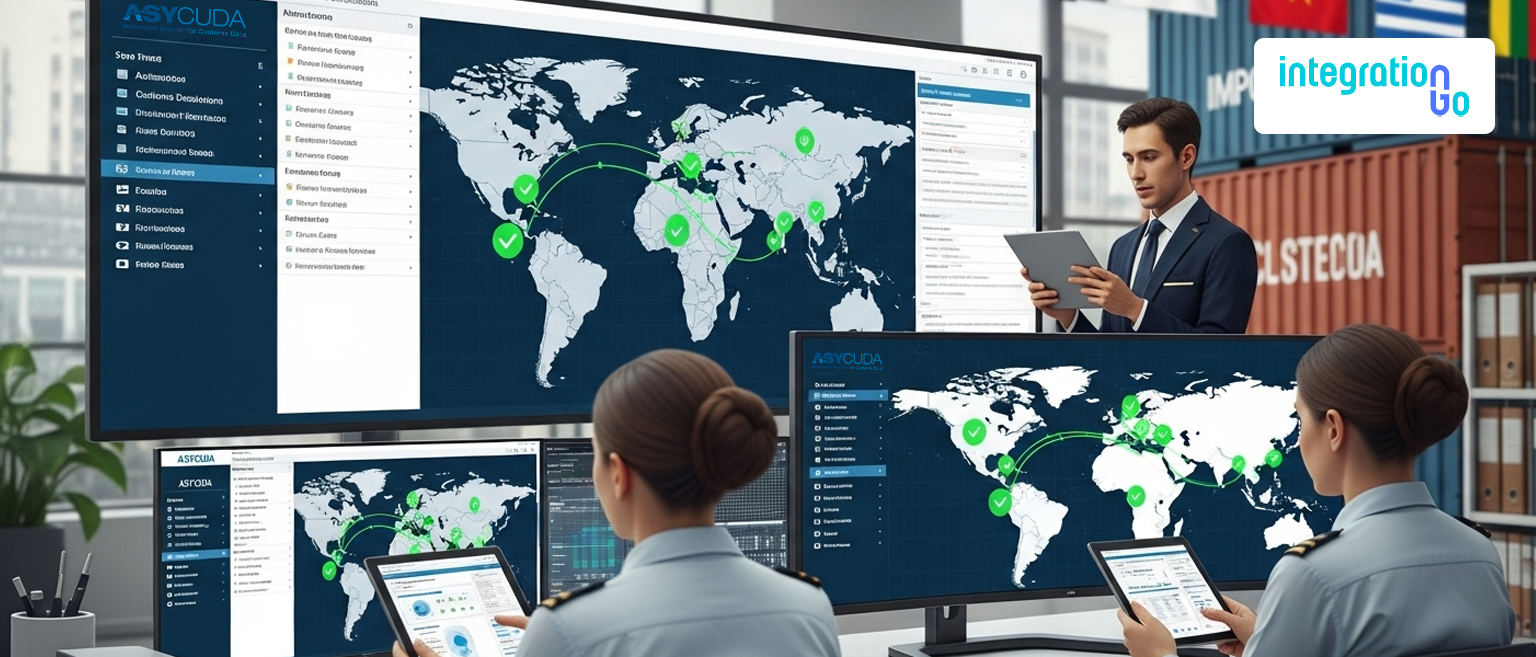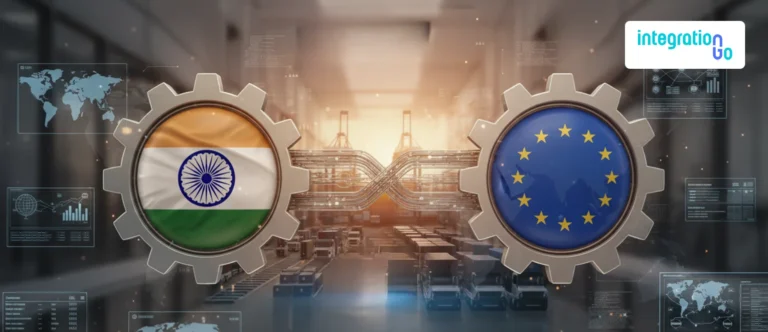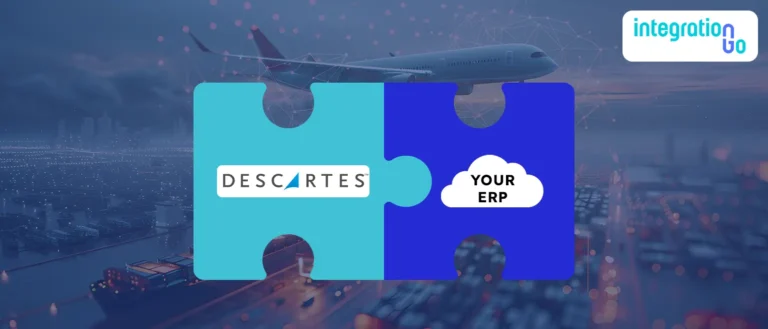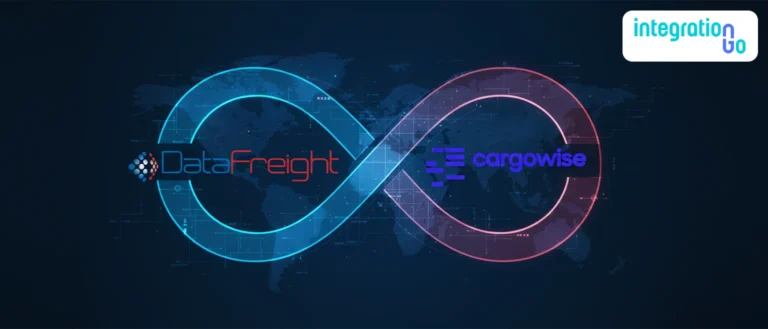"Trade is not limited to the border. However, if your paperwork isn't perfect, it might slow down there.”
Ask anyone in logistics or international trade where things get messy, and they’ll point straight at the customs process. It’s the place where regulations, paperwork, and country-specific rules collide, and where even the smallest mistake can cause big delays or expensive penalties.
For decades, customs procedures have been plagued by manual entries, inconsistent data, and a serious lack of real-time visibility. Here is what you need to know about customs integration, the tool that’s quietly transforming how governments and businesses handle global trade compliance. But how exactly does it help keep you on the right side of international trade standards? Let’s unpack it.
Why Compliance is Such a Headache
Before talking about ASYCUDA, it’s worth remembering why compliance is so tough. International trade rules are complex and ever-changing. You’re dealing with:
- Evolving tariff codes
- Shifting free trade agreements
- Sanctions and embargo lists
- Specific documentation requirements by country
One misclassified HS code or missing document, and suddenly your shipment is stuck in limbo, racking up demurrage fees and frustrating your customers.
And the worst part? Numerous customs authorities use various formats, procedures, and systems. What is effective in one nation may be completely disapproved of in another.
Where ASYCUDA’s Customs Automation Fits In?
ASYCUDA (Automated SYstem for CUstoms DAta) is like the universal translator for international trade. Developed by UNCTAD, it’s used in over 100 countries, replacing stacks of paper forms with digital records that talk the same language globally.
What’s powerful about ASYCUDA’s Customs automation is that it standardizes how data is captured, processed, and validated. It’s not just digitizing the old forms, it’s reimagining how customs handles risk assessment, duty calculation, and regulatory enforcement.
This is huge for compliance because it builds consistency into the process. Whether your goods are moving through Africa, Asia, or the Caribbean, ASYCUDA helps ensure the same rules are applied, and the same data is checked every time.
Digital Declarations Mean Fewer Mistakes
One of the biggest compliance wins comes from moving declarations online. With ASYCUDA, traders and freight forwarders can submit declarations electronically, with built-in validations that check for:
- Proper HS codes
- Accurate valuation data
- Correct country-of-origin info
- Required supporting documents
Instead of errors slipping through until a customs officer catches them (often too late), ASYCUDA flags issues upfront. That alone cuts down the risk of non-compliance and speeds up the clearance process.
Real-Time Data for Real-Time Decisions
ASYCUDA’s Customs automation isn’t just about filing documents faster, it’s about seeing what’s happening as it happens. Because it operates in real-time, customs officials and traders alike get instant updates on:
- Shipment statuses
- Inspection results
- Duty and tax calculations
- Release orders
This visibility means traders can react quickly if there’s a compliance issue, rather than waiting days for manual notifications.
Imagine learning immediately that a certain commodity is now subject to a new tariff. With ASYCUDA, updates flow straight through the system, helping you adjust declarations and stay compliant without missing a beat.
Harmonized Standards Across Borders
International trade standards exist so goods can move seamlessly worldwide, but that only works if customs systems apply those standards uniformly.
ASYCUDA’s Customs automation enforces consistent rules across borders by embedding global standards like:
- The Harmonized System (HS) for tariff classification
- WTO customs valuation agreements
- WCO safe framework for risk management
It’s like giving every customs office the same rulebook and making sure they follow it. For logistics professionals, that reduces surprises and ensures you’re compliant no matter where your cargo is headed.
Automation Cuts Corruption and Improves Transparency
Compliance isn’t just about following rules; it’s also about trust. In some regions, manual customs processes have historically been vulnerable to informal payments or “facilitation fees.” ASYCUDA’s automated workflows leave an auditable digital trail, reducing opportunities for off-the-books transactions.
Traders can track declarations, payments, and approvals through the system, providing the transparency that regulators and ethical businesses demand.
Why ASYCUDA Integration Matters?
Of course, the real magic happens when ASYCUDA connects smoothly with your internal systems. Customs integration links platforms like CargoWise, SAP, or Oracle directly to customs data, so declarations, invoices, and shipment updates flow automatically. No manual re-entry. No transcription errors.
When you integrate ASYCUDA:
- Your ERP or TMS pushes data directly into customs declarations
- Status updates come back automatically
- Documentation stays consistent across systems
- That’s compliance on autopilot, and a massive time saver.
Conclusion
Moving freight is only one aspect of today's logistics business; another is doing it effectively and legally. With the help of ASYCUDA's customs automation, logistics experts, freight forwarders, and customs brokers may stay ahead of international rules, save expensive delays, and satisfy clients.
Additionally, it's a competitive advantage in a world where supply chains might be destroyed by customs delays.
Ready to see how ASYCUDA’s customs integration could simplify compliance for your business? Let’s connect. Book a free consultation with our integration experts and discover how smooth global trade can be.




